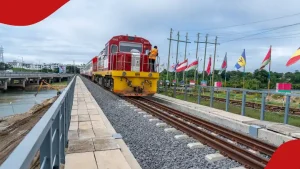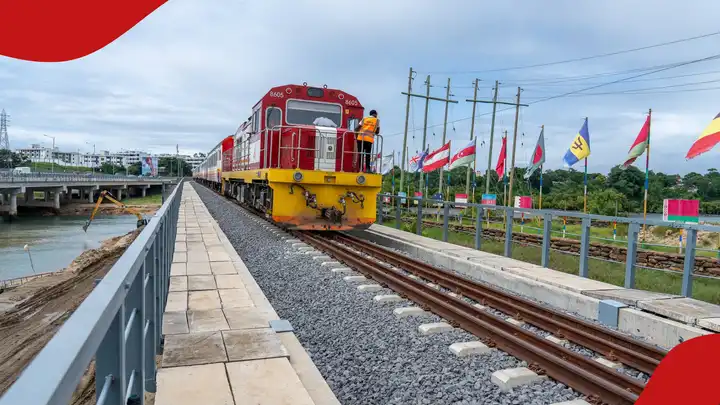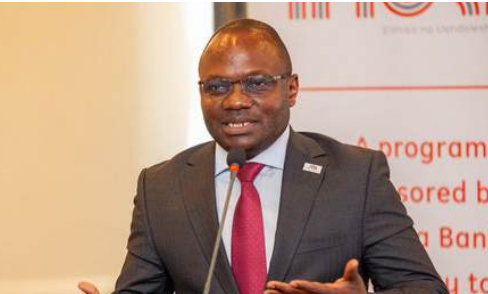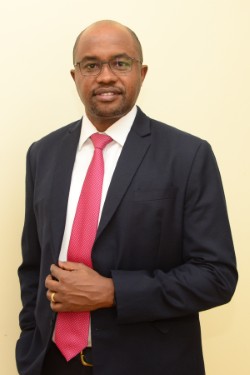As a result of the June 2025 increase in the global average fuel price, which went from $1.25 (KSh 161.50) to $1.27 (KSh 164.08) per litre, many African countries followed suit in raising pump costs. Motorists fuel at the Total Petrol Station, Nakuru. Photo: SOPA Images. Source: Getty Images However, there are concerns over why prices in some African nations continue to be disproportionately high compared to others. Why are Africans facing high fuel costs? One of the causes is the depreciation of several African currencies against the United States (US) dollar. The greenback is the primary currency used in international oil transactions. High costs for distribution and logistics drive up pump prices even further. Many African nations are heavily dependent on imported refined petroleum products due to a lack of suitable refining facilities.
Martin Chomba, the chairman of the Petroleum Outlets Association of Kenya, told TUKO.co.ke that the Iran-Israeli conflict increased petroleum costs. “The geopolitical tensions disrupted fuel supply routes. Brent briefly hit a five-month high of $81 (KSh 10,475 at current exchange rate) per barrel before coming back to around $70 (KSh 9,044), which is still high because before that war, we were doing much lower than $70 per barrel,” Chomba explained. Kenyans are paying KSh 186.31 for a litre of petrol. Photo: SOPA Images. Source: Getty Images The introduction of additional levies and the removal of subsidies in Kenya, for instance, is another factor.
“Like labour, land, and capital, fuel is a base product in Kenya’s manufacturing cycle. Excessive taxes on petroleum products have a direct effect on production and reduce economic output. Reducing such taxes would leave people with more money to spend on other goods, leading to an increase in both productivity and consumption. This boost in economic activity would, in turn, result in higher tax revenues from increased production,” Rufas Kamau, a market analyst at FX Pesa, told TUKO.co.ke. Which African countries have the highest diesel prices? Given that diesel is crucial for transportation, manufacturing, and agriculture in several African countries, high diesel costs continue to be a major problem for both consumers and governments. Diesel, as opposed to petrol, is crucial to heavy-duty and logistical activities in Africa; hence, variations in its price have a particularly substantial influence on supply chains, food prices, and economic activity. RECOMMENDED FOR YOU Kenyan woman stranded after mum asks her to move out or get married Diesel drives farm equipment, trucks, buses, and even electricity generators in many African economies, particularly in locations with unreliable grids. Food costs rise as a result of increasing distribution expenses, transportation firms hike fees, and businesses that rely on generators incur greater overheads when fuel prices rise. According to Business Insider Africa, below is the list of African countries with the highest diesel prices: Rank Country Diesel price 1. Central African Republic $2.326 (KSh 300.52) 2. Malawi $1.574 (KSh 203.36) 3. Zimbabwe $1.50 (KSh 193.80) 4. Cameroon $1.481 (KSh 191.35) 5. Seychelles $1.394 (KSh 180.10) 6. Sierra Leone $1.392 (KSh 181.01) 7. Guinea $1.386 (KSh 180.23) 8. Senegal $1.351 (KSh 175.68) 9. Kenya $1.320 (KSh 171.58) 10. Burundi $1.318 (KSh 171.39) Which African countries have the highest petrol prices? Below is the list of African countries with the highest petrol prices:
Rank Country Petrol price 1. Central African Republic $1.83 (KSh 237.97) 2. Senegal $1.725 (KSh 224.31) 3. Zimbabwe $1.54 (KSh 200.26) 4. Côte d’Ivoire $1.490 (KSh 193.76) 5. Burkina Faso $1.481 (KSh 192.58) 6. Cameroon $1.464 (KSh 190.37) 7. Malawi $1.46 (KSh 189.85) 8. Morocco $1.442 (KSh 187.51) 9. Kenya $1.43 (KSh 186.31) 10. Uganda $1.43 (KSh 185.80) How did Kenyans react to EPRA’s fuel review? Earlier, TUKO.co.ke reported that the Energy and Petroleum Regulatory Authority (EPRA) raised fuel prices on Tuesday, July 15. As a result, consumers will have to dig deeper into their pockets to buy petroleum for the next month. Kenyans expressed their opinions on the rising fuel pricing on social media, casting doubt on the government-to-government fuel deal inked by President William Ruto’s government with Gulf nations.
By Japhet Ruto












